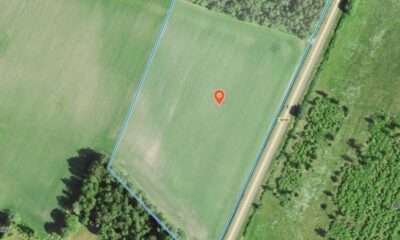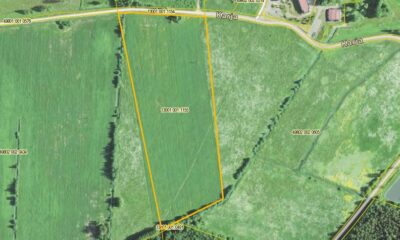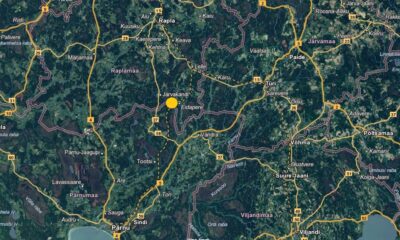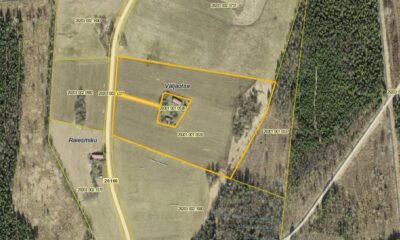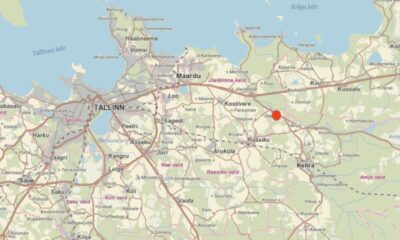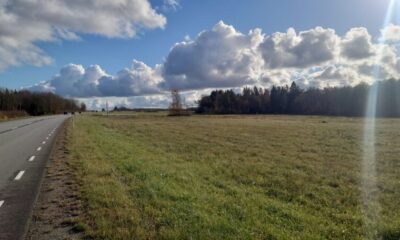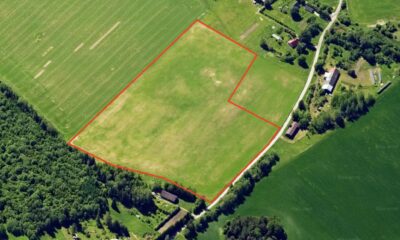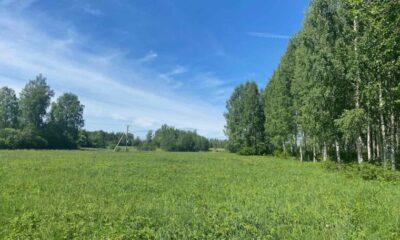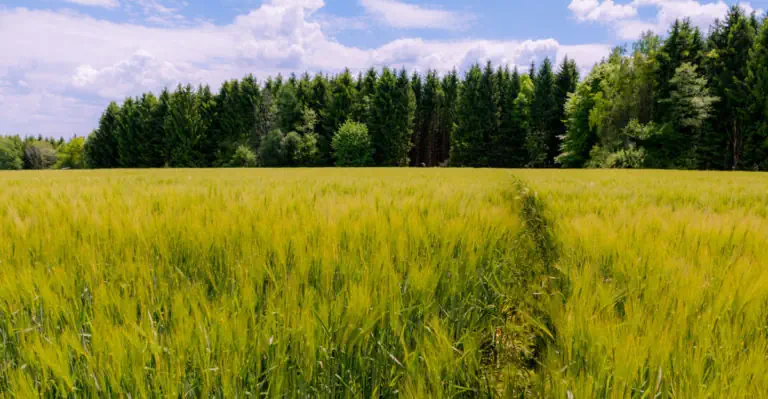Want to buy forest or other land?
Seeking opportunities for bigger land investments?
Want to start investing in Estonian land, add land to your existing investment portfolio,
or perhaps sell land and forest?
Want to know the value of you property?
Ask for an evaluation of your land or forest for free!
Forest and land listings
Want to buy a plot?
We sell large plots of land for investment, cultivating and felling:
- Large forests
- Large plots of arable and farmland
- Farmland with forests
- Land with farms and other agricultural companies
You can also buy smaller plots, which increase in value over time:
- Woodland
- Farms with surrounding gardens and land
- Smaller farmland
- Country houses with associated farmland and forestland
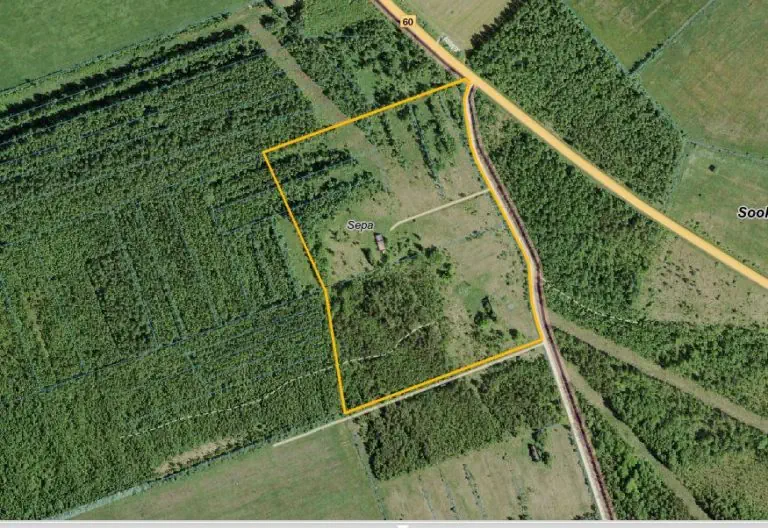
Top find
Large forest on the island of Hiiumaa
This growing forest will supply 4000 m3, of mostly pine and spruce. The 30-hectare plot is in the Pihla-Kaibaldi nature conservation area, where up to 5 hectares of shelterwood can be felled once every 5 years.
A perfect plot for hunters
Hunting is permitted in the conservation area
A Natura 2000 area
Natura 2000 toetus on 1824 € aastas
Our services
Forestland and farmland for sale
If you’re looking to buy some forest or farmland, then we have plots available all over Estonia. Please take a look below and contact us for further information.
Look at the plots on saleWe buy Estonian farmland and forests
If you’re looking to sell some forest or farmland that you currently own in Estonia, then we will make you an offer. If our offer suits you, we handle transactions quickly and will pay up front.
Tell us about the land you’re sellingWe facilitate forest and land sales transactions
If you’re looking for professional help with your sale transaction, such as land surveying or legal matters, then we have a wide range of experts available to help you.
More informationTestimonials
Why us for your land transactions?
Get in touch!
Experience
We have over 25 years of experience in buying and selling land in Estonia.
Speed
We respond to enquiries quickly and offer customers a free consultation.
Professional
We can help you with land surveying and a range of legal processes.
Up-front payment
Should you be decided in wishing to sell your land and happy with our quote, we can pay you immediately and up-front.
Why is forestland a profitable investment?
Forests are sometimes referred to as “green gold” among bankers and investors. This is because the value of a forest tends to grow in almost any economic situation, as the forest’s natural growth and maturation does not depend so heavily on business cycles. Investing in a forest also has a certain emotional value – it provides the opportunity to invest in Estonia and take care of a small part of the country.
Forests as investments
Forested assets help you mitigate risk in an investment portfolio. Whatever stage of business cycle the world is in, at least a moderate increase in the value of forestland can be assured. Forests are invariably the first to emerge from economic recessions, while maintaining their liquidity.
Please bear in mind that forests are not short-term investments or the means for quick returns. Considering biological growth, the annual return of forestland can be 3-5%. With professional and prudent management, this can increase to up to 10%.
Forestland is a relatively safe investment, as changes in forestry do not take place as fast as in other areas of society. Should the price of timber not meet your expectations when your land matures, you will not be at a loss if you choose to postpone a year before selling your timber. Similarly, favorable market conditions can bring about a marked increase in prices: for example, between 2017 and 2018, the price of softwood and pulpwood increased by up to 50%.
According to the Private Forest Center, the prices of all types of wood have steadily increase (with minor fluctuations) from 2011 until a recent decline that began at the end of 2018.
Is forestland a suitable investment for you?
Comparatively small investments, involving smaller plots of land, might be suitable if you have a personal interest in the enhancement of forests and forest management. Forests are liquid assets that increase in value over time, no matter their volume.ul.
Forestland, as an asset of national importance to Estonians, is a slightly different asset than shares or credit financing. It often has a degree of emotional value that arises from knowing that you are doing your part for ecological sustainability, or from the simple beauty of watching your forest grow. Forestland also offers products for the owner’s private use, such as firewood, berries, and mushrooms.
Forestland is a relatively safe investment, as changes in forestry do not take place as fast as in other areas of society. Should the price of timber not meet your expectations when your land matures, you will not be at a loss if you choose to postpone a year before selling your timber. Similarly, favorable market conditions can bring about a marked increase in prices: for example, between 2017 and 2018, the price of softwood and pulpwood increased by up to 50%.
According to the Private Forest Center, the prices of all types of wood have steadily increase (with minor fluctuations) from 2011 until a recent decline that began at the end of 2018.
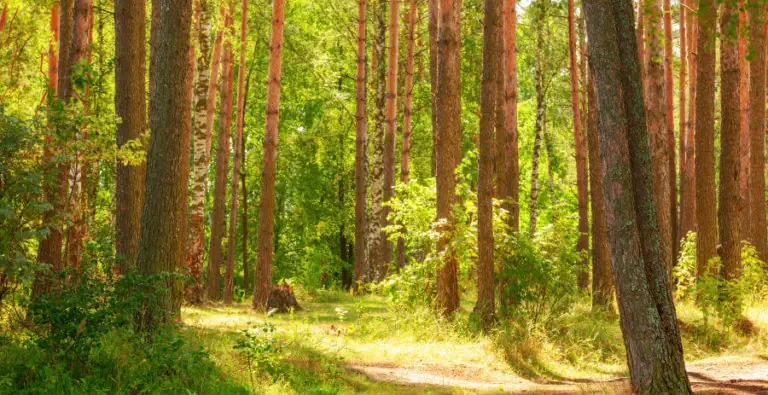
If you do not want to deal with forest management yourself but would like forestland to be part of your assets, you can compile a forest portfolio with us. A more sizable investment could start with at least 500 hectares, a size that allows for annual income. After the deduction of expenses, one hectare can provide an income of about 100 to 150 euros per year. Accordingly, a 500-hectare forest portfolio would yield 50,000 to 75,000 euros per year, for several decades.
Forests typically account for 20-30% of a well-diversified investment portfolio.
A forest investment provides the greatest returns if trees are felled when timber prices are at an optimal level, not when liquidity is quickly needed. Since changes in forestry take place slowly, it is advisable to wait for the right moment before divestment, instead of selling forestland based on the short-term need for liquidity.
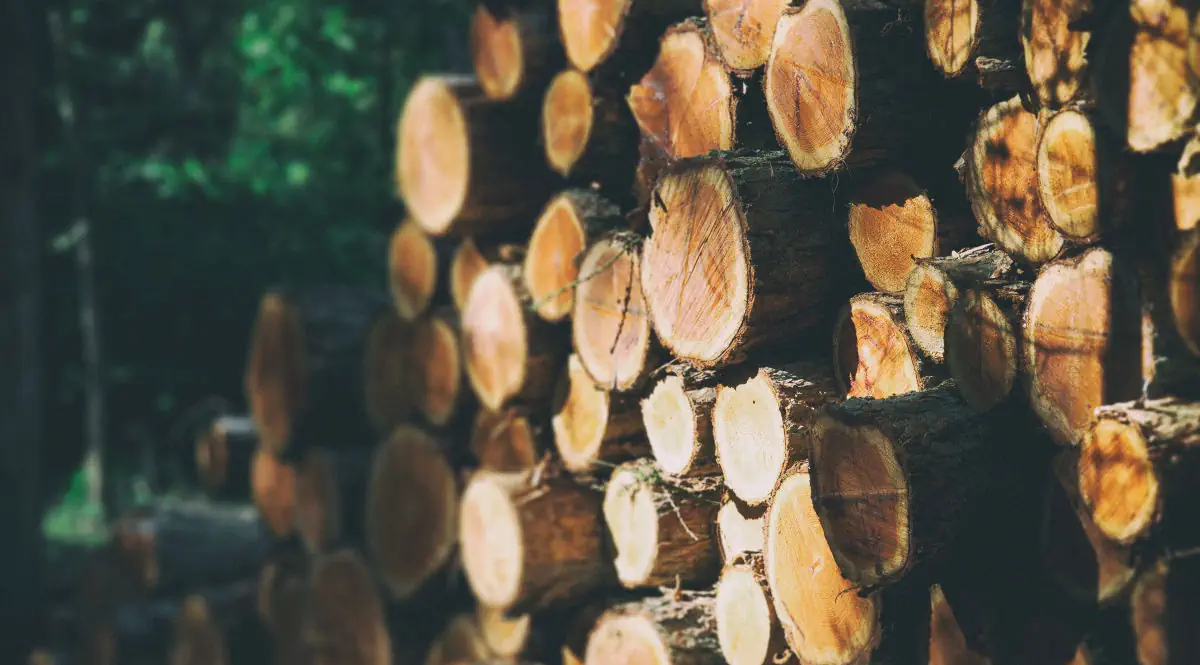
Risks of investing in forestland
A smaller investment has slightly higher risks, as it is more vulnerable to local damage from storms or fire. Sometimes, a part of a forest asset may be made into a nature conservation area, due to changing animal or bird habitats, which would reduce its liquidity and value.
When selecting forestland, it is wise to use the help of an expert – for example, advice from a consultant at a forest association or forest investment company. As a forest’s value is hard to measure and evaluate, honest and transparent information and advice about a forest can be very valuable for deciding what to buy.
A new investor should also consider how quickly and in what manner they wish to earn income, and buy forestland based on those criteria. For example, it is initially cheaper to buy clear-cut forestland, but this incurs subsequent planting and maintenance costs, plus longer waiting before earning income from timber.
We suggest putting together a portfolio of forests of different ages. This way, income from middle-aged and mature forests can help cover the costs of planting and managing younger trees.
Things to bear in mind when investing in forests
Forestland is an investment for a person who values comfort and security. Compared to other investment opportunities, it is highly safe, because a forest is a biological asset with certain growth. Many things might otherwise happen to the economy, during which forests will still keep growing, resulting in sustained demand to buy forestland in any business cycle. The following should be kept in mind when investing in a forest:
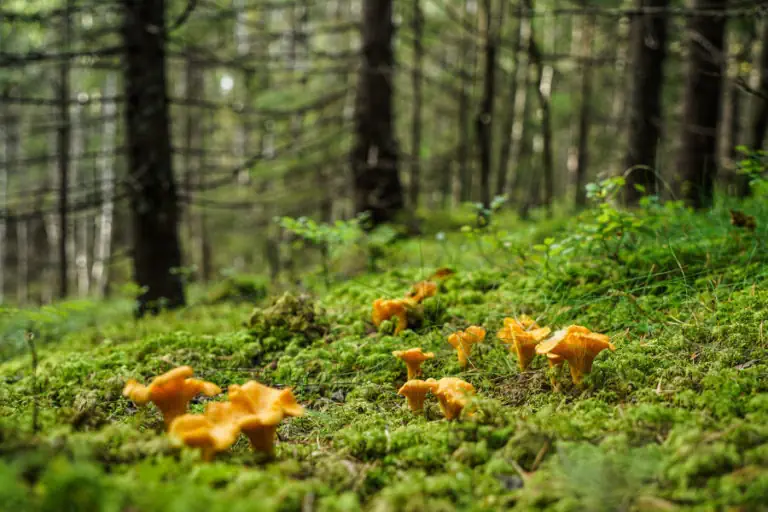
It is a long-term investment – forests are not suitable for earning quick returns
Compared to other investments, investing in forestland is a safe way to preserve assets
Depending on management style, forestland typically produces an annual return of 3-10%
Higher returns from forestland are delivered by prudent management, with felling and the sale of timber timed to elevated market demand
In order to diversify risk, the share of forestland in an investment portfolio should not exceed 20-30%
A well-balanced forest portfolio will include forests at different growth stages, allowing for the income from mature forests to help cover the costs of younger forests
Upon purchasing forestland, be prepared to make subsequent investments that increase the productivity and quality of the newly acquired asset
Forestry equipment is very expensive, which most investors will not need to buy. Instead, all professional forest management services can readily be found on the Estonian market
Before investing in forestland for the first time, take the time to get acquainted with the forestry industry. Use the help of experienced professionals to help deliver the highest possible level of return.
EstEst PR – over 25 years of experience in forest-related transactions.
Are you looking for a reliable partner for your first forest investment? As a forest management company, we have extensive experience.
We have a large number of plots for sale on an ongoing basis, and help buyers with various investment plans to find plots that best meet their needs.
Do you need help with buying your first forest? We help with administrative matters related to land purchase and, if desired, subsequent forest management. Contact us at +372 514 5215 or via email at info@est-land.ee.
Articles and News
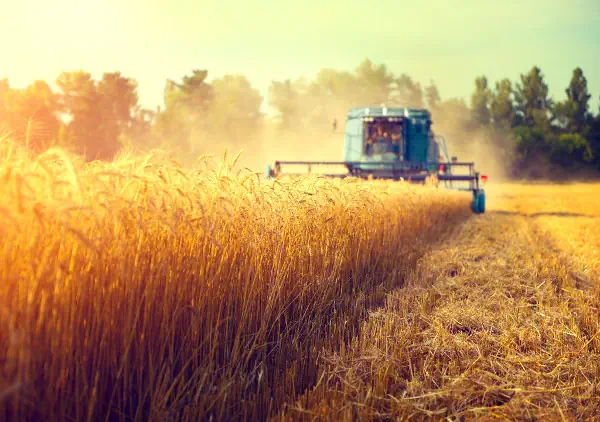
Is agricultural land a profitable investment?
In discussions on real estate investments, leased apartments and commercial real estate often come up, but buying forest land or agricultural land as an investment is much rarer, even though …
Read more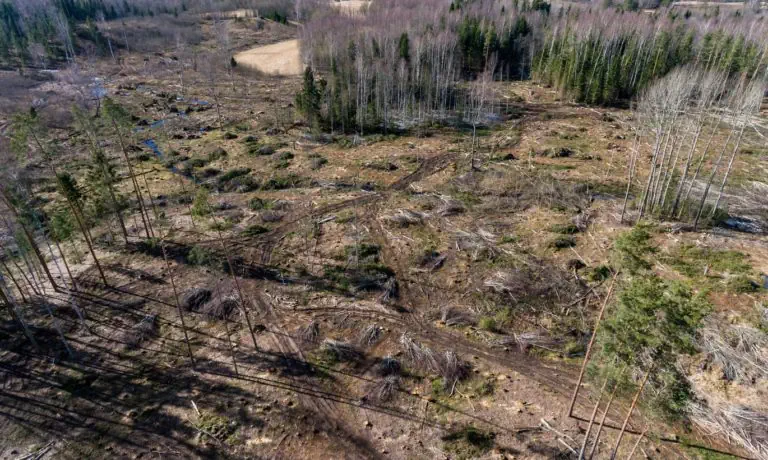
When is a forest notification required?
All forest owners are obligated to manage their forests responsibly and in accordance with current legislation. The need to abide by legal requirements applies particularly to legal persons whose forests …
Read more